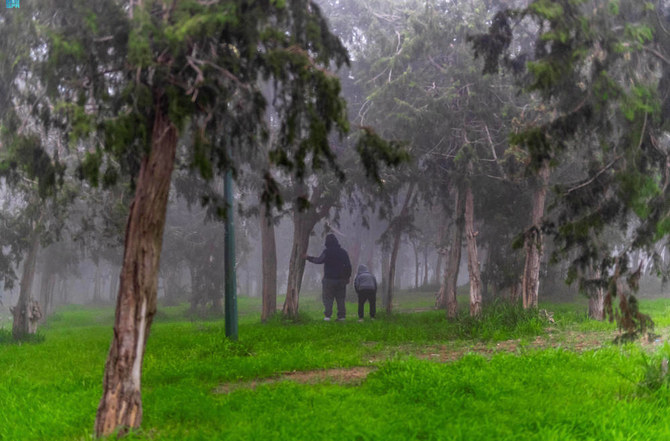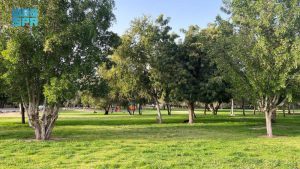
- ARAB NEWS
- 20 Apr 2024

JEDDAH: Saudi Arabia continues to tackle desertification by researching and studying ways to plant and preserve local wild plants and trees.
Currently, about 24 initiatives aim to reach the target of planting 10 billion trees by 2030 as part of the Saudi Green Initiative.
In 2020, the World Economic Forum launched a global initiative to grow, restore and conserve one trillion trees globally and overcome challenges caused by climate change.
According to the Saudi National Center for Wildlife, the Kingdom is home to more than 2,000 species of wild plants that belong to 142 families, of which more than 200 are endemic, more than 600 are endangered, and 21 are extinct.

The plant species are found in sandy areas, salt marshes and aquatic environments.
Abdulrahman Alsoqeer, chairman of the Environmental Green Horizon Society, told Arab News: “Desert land is usually characterized by low organic matter, therefore it decreases fertility, making it more difficult for plants to grow and flourish in general. However, the preservation and protection of tree growth areas contribute to the increase in soil fertility and thus increases the growth and survival of local plants.”
Saudi Arabia is no stranger to tackling challenges caused by the decline of the environment’s natural vegetation throughout the decades.
Earlier last year, the Saudi Ministry of Environment Water and Agriculture, and the National Center for Vegetation Cover, successfully completed the “Let’s Make It Green” campaign, which witnessed the plantation of 10 million trees across 165 sites in the Kingdom in just six months, to develop vegetation cover and limit desertification.
The campaign focused on planting endangered native trees and shrubs in environmentally declined areas due to overgrazing, logging, uprooting and urban development.
“Plant species are threatened with extinction either because of their natural scarcity or because they’re overexploited,” said Alsoqeer, adding that acacia tortilis, mimusops laurifolia, ficus vasta, breonadia salicina, moringa, haloxylon persicum, calligonum, and salsola vermiculata are on the verge of extinction in the Kingdom.
Among the projects to conserve plants and trees in Saudi Arabia is the recent research conducted by a team of scientists and experts from the King Abdullah University of Science and Technology, the Ministry of Environment Water and Agriculture, and the National Center for Vegetation Cover.
The research focused on examining, preserving and reintroducing local wild plants to their habitat in the Hail region of Saudi Arabia.
“The general deterioration of the vegetation cover, which reached nearly 80 percent during the last few decades, led to a disruption in the environmental system in general, and this, in turn, has placed the risk of extinction on some plant species including unregulated grazing, logging, mining activities and quarries,” Alsoqeer said.
Raising public awareness is also a crucial aspect in maintaining the natural habitat of local wild plants and trees.
Recently, in Al-Aflaj, a town located more than 300 km from Riyadh, a team of environmental volunteers successfully planted several plants known to the area to bloom during the spring season.
“Developing environmental awareness is essential to educate citizens about the importance of trees, their benefits, their vital role and the need to protect them. Implementing laws to protect trees and prevent their encroachment is also necessary,” Alsoqeer said.